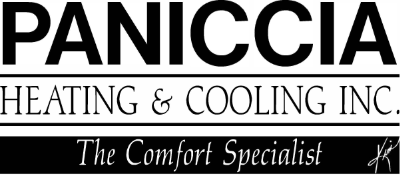
If you’re unsure whether your Michigan City home has poor indoor air quality (IAQ), it possibly does.
We are indoors a lot. In reality, we’re inside up to 90% of the time, according to the U.S. Environmental Protection Agency. And the air inside homes could be 2–5 times more polluted than outdoors, which may create long-term health issues.
Most Common Origins of Bad IAQ
We’ve put together a list of the most common sources of inferior IAQ, the problems they cause and how you can fix these indoor air pollutants. If you’re worried about the air inside your house, we recommend consulting with a professional like Paniccia Heating & Cooling about which solutions are best for your house.
Volatile Organic Compounds
Volatile organic compounds, or VOCs, are vapors released by everyday household things.
They’re found in paint and stains in addition to:
- Furniture
- Carpet
- Building materials
- Cleaning products
- Cosmetics
- Air fresheners
- Candles
When these chemicals accumulate inside, they might irritate your eyes, nose and throat. They may also cause headaches and nausea. Regardless of whether your residence is in a rural or industrial location, an EPA study found indoor levels of these pollutants can be 2–5 times higher than the air outside.
Always follow the manufacturer’s guidelines when using paint or cleaning supplies. Unlatching a window can help fumes dissipate faster.
Air purification systems can also help. This equipment partners with your heating and cooling system to clean indoor air. When looking for a model, ensure it’s specifically made to eradicate VOCs.
Dust and Pet Dander
Dust and pet dander can irritate health problems like asthma and allergies, especially when it continuously gets redistributed by your home’s comfort system. While you can vacuum more frequently and install an improved air filter, an air filtration system might be a better match.
This unit hooks to your comfort equipment to provide strong filtration. Some kinds offer hospital-level filtration for getting rid of particles and bioaerosols.
Persistent Odors
New homes are tightly sealed to increase energy efficiency. While this is fantastic for your utility expenses, it’s not very good for your IAQ.
Stuffy odors can stick around for a greater amount of time because your residence is pulling in reduced fresh air. Because keeping your windows open all year-round isn’t a possibility, here are two methods you can make your indoor air smell fresher.
An air purification system is placed in your ducts to neutralize odors before they recirculate. Find one with a carbon filter and the power to eliminate harmful VOCs. These systems can also help keep your family healthy by wiping out most bacteria and normal allergy triggers like pollen and mold spores.
A ventilation system pulls out musty indoor air and substitutes it with clean outdoor air. There are two types of systems (heat recovery and energy recovery), so check with our professionals for more details on which kind is right for your residence.
Unsteady Humidity
It’s essential your house’s humidity keeps even. Air that has too much moisture can lead to mold, while dry air can lead to respiratory symptoms.
Our technicians suggest 40–50% for the best comfort. To keep yours in balance, consider getting a whole-home humidifier or whole-home dehumidifier with your heating and cooling system.
Instead of having to lug a humidifier from room to room, this product delivers balanced humidity throughout your house.
Carbon Monoxide
Carbon monoxide is colorless gas you can’t smell. It’s a byproduct of insufficient combustion in fuel-burning equipment, like gas heating systems, water heaters or fireplaces.
It causes a serious health risk. In low levels, it can lead to flu-like ailments like headaches and nausea. It can be deadly in large concentrations.
We suggest yearly furnace maintenance to double-check your unit is running like it should. This service allows our technicians to find issues before they start, including malfunctions that can cause carbon monoxide leaks.
The best method to keep your residence free of carbon monoxide is to get detectors. These alarms need to be on every floor by bedrooms and living areas.
Improve Your House’s Air Quality with the Paniccia Heating & Cooling Professionals
Informed that your home has inferior air quality but not sure how to make it better? Or unsure which product is a good fit for you? Give our friendly HVAC experts a call at 219-872-2198 or contact us online today. With free estimates and expert support, we’ll help you locate the right equipment for your home and budget.
